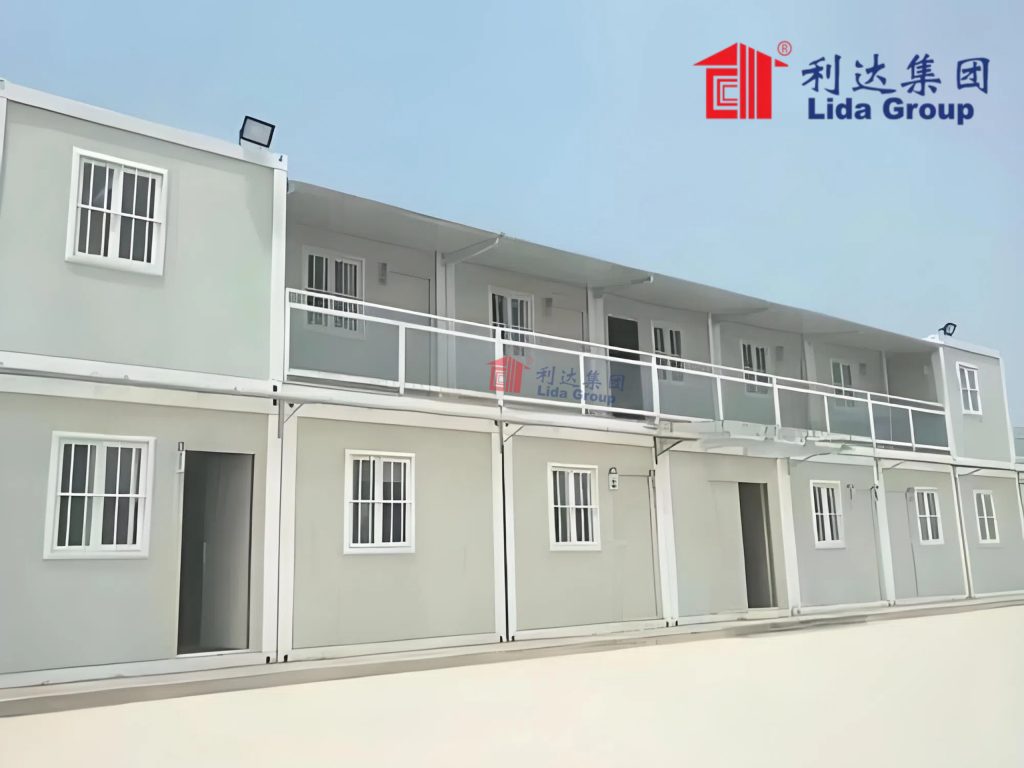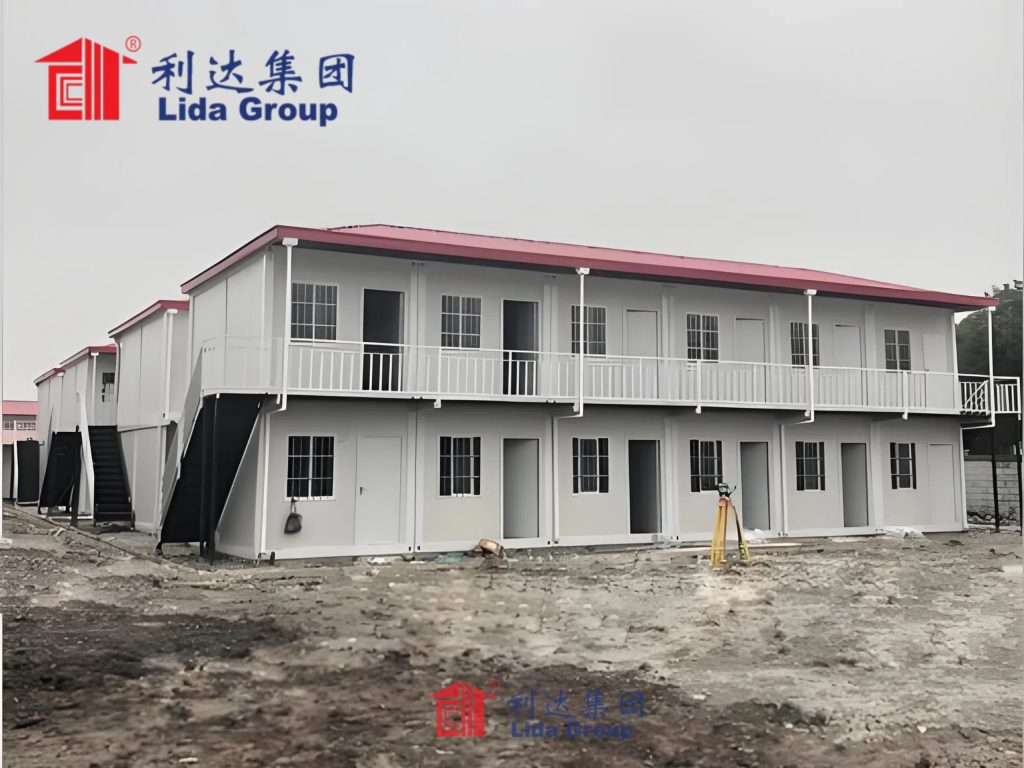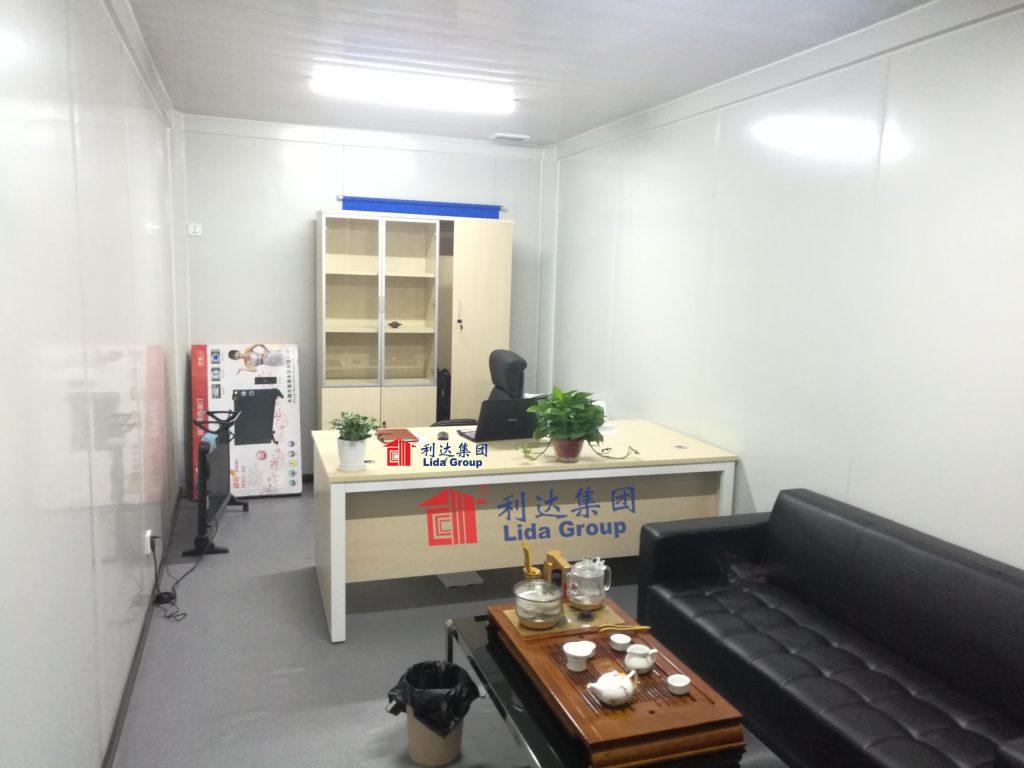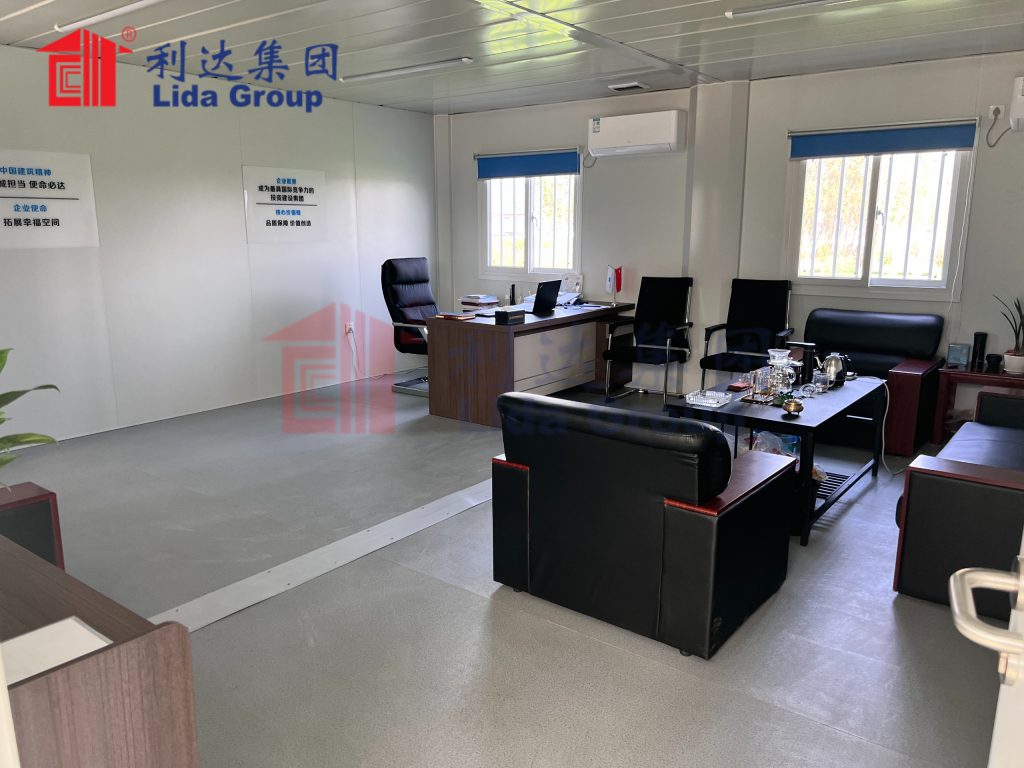As mineral exploration expands into more remote frontier regions globally, providing suitable housing and amenities for transient mining workforces presents logistical challenges. Traditional on-site workforce housing infrastructure like dormitories require substantial sunk capital costs yet offer little flexibility if operations shift locations. One international mining firm is piloting a new scalable solution deploying prefabricated living complexes constructed using repurposed shipping containers from modular builder Lida Group.
The mining company has existing operations across several countries containing aging on-site workforce accommodations in need of replacement. Rather than constructing new permanent structures, managers opted to trial portable living camp complexes assembled entirely from refurbished shipping containers. Capable of handling rugged mining environments, containers offered durable weatherproof shells for modular sleeping quarters, shared facilities, and portable independence ideal for frontier sites.
Working with Lida Group engineers, a standardized system was developed utilizing 40-foot high-cube containers structurally reinforced and outfitted as interconnecting individual modules. Factory assembly outfitted containers with insulated interiors, plumbing, electrical wiring, and finishes. Sleeping quarters featured private rooms or dorm-style configurations, with shared bathrooms, kitchens, and lounges. Project managers customized configurations for various camp sizes housing 50-200 workers each.

Modular container connections created weatherproof enclosures, and lifting points precisely positioned modules for rapid on-site erection. Integrated steps and balconies overcame level differences. Self-contained utilities, backup power, and robust construction renders camps occupiable immediately upon delivery. Movable living quarters detach from floors via pinned foundations for efficient relocation if operations shift to new extraction sites.
Piloting the portable complexes, the first camp recently replaced an aging 80-person dormitory at a remote gold mine. Over two weeks an installation crew erected 100 modular container rooms along with shared facilities, recreation areas and a mess hall—all ahead of schedule. Workers immediately took up residence reporting improved living spaces compared to the previous musty barracks.
Similar projects are staged to replace dormitories at active coal and copper mines across multiple countries. Additional deployments will house exploration teams evaluating new mining frontiers. The modular complexes offer independence from permanent camps, avoiding budgetary lock-in to single sites. As mining progresses, camps relocate proactively via truck or barge to house workforces near shifting operations according to production schedules.

The robust portable housings provide quality living spaces suitable to remote job sites lacking infrastructure. Steel container modules withstand harsh environments, requiring minimal maintenance. Accommodations meet all health and safety standards with consistent spaces optimized through factory assembly. Personnel managers report worker satisfaction and retention improving due to comfortable modern living conditions.
Enclosure strength and sealed construction safeguard facilities on active worksites prone to dust, noise and weather. Fireproof containers reduce risks, and prefabricated electrical installations comply with stringent mining codes. Barrier-free design considers worker comfort, safety and accessibility. Camps integrate renewable power and water recycling as green initiatives.
In developing mining frontiers lacking services, integrated self-contained camps empower independent self-sustaining communities. Prefabricated leisure and administrative modules supplement workforce housing to establish complete remote settlement complexes. Temporary camps relocate in whole leaving little environmental footprint during site redevelopment.

Overall, the portable yet durable mining camps showcase advantages of Lida Group’s container modular construction: Rapid scalable deployment, consistent quality, weatherproof mobility, minimal ongoing costs, and environmental stewardship through optimized reusability. Initial positive reception by mining companies and transient workers substantiates potential for expanding the solution to additional global operations.
As pilot projects progress, researchers will analyze camps’ performance impacts including occupational health and safety. Comparisons to conventional permanent camps will quantify operational efficiencies, worker productivity and financial benefits from reduced upfront infrastructure costs. Mobility’s potential for enabling optimized continuous operations through shift relocations merits evaluation too.
Meanwhile, additional innovations adapt the modular complexes. Mobile nurses’ stations and portable schoolrooms supplement camps establishing self-reliant townships. Self-erecting recreation facilities boost workforce retention. Where viable, incorporation of renewable power microgrids promotes independent islands suitable for off-grid locations.

In conclusion, scalable portable living complexes engineered from repurposed shipping containers show strong potential replacing aging workforce accommodations inflexibly tied to single mine sites. Durable modular construction overcomes infrastructure barriers enabling housing adapted continually to shifting mining frontiers. Prefabrication delivers consistent quality spaces promoting health, safety and worker satisfaction crucial to global mining operations. Economic and sustainability advantages through optimized mobility and reusability merit ongoing studies as the concept revolutionizes workforce housing for transient industries worldwide.

Related news
-
Researchers analyze modular construction techniques and energy efficient designs of high quality prefabricated homes assembled easily from refurbished shipping containers by Lida Group.
2024-07-03 16:51:00
-
Feature story profiles innovations in Lida Group's standardized steel housing structures combined with integrated renewable power backup and sustainable materials optimized for quality high-density rental housing.
2024-07-02 09:39:01
-
Case study evaluates the durable construction, integrated facilities and customizable layouts of prototype steel-framed condominium buildings constructed by Lida Group to promote sustainable high-density living.
2024-07-01 15:44:38
contact us
- Tel: +86-532-88966982
- Whatsapp: +86-13793209022
- E-mail: sales@lidajituan.com


